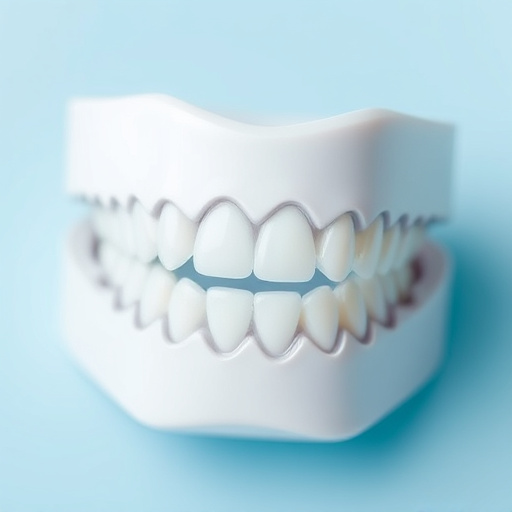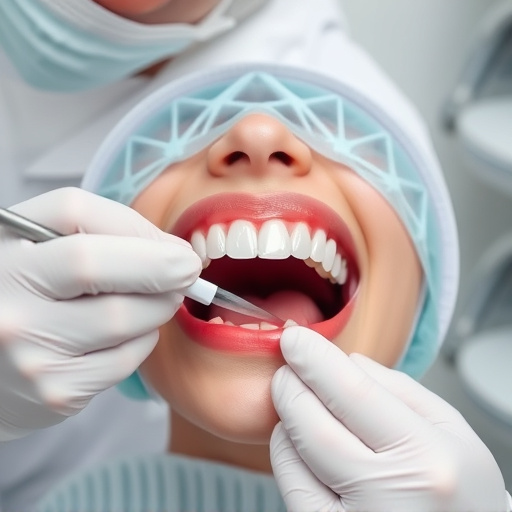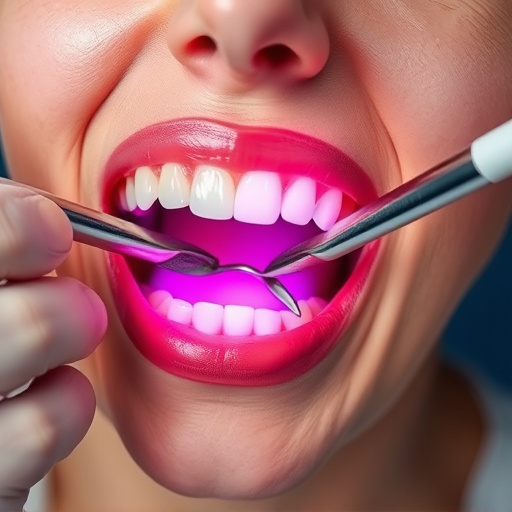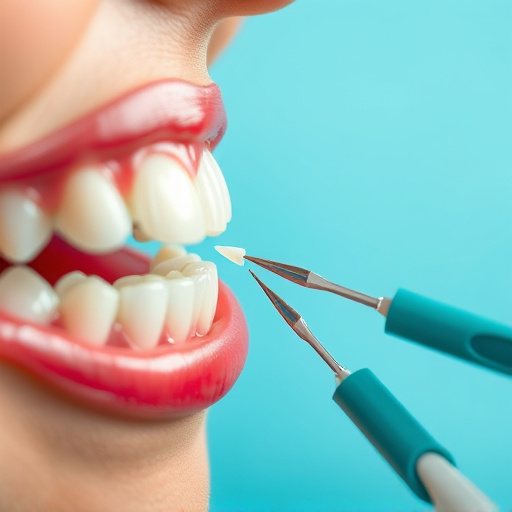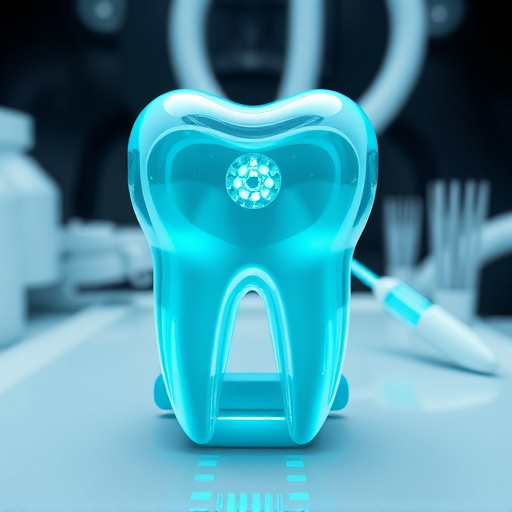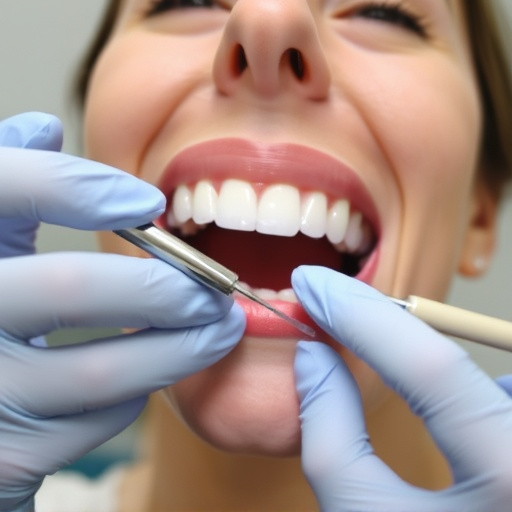Tooth sensitivity (a common dental issue) isn't always serious but could indicate various problems within the tooth structure. Diagnosis involves comprehensive oral exams, patient history, temperature testing, and pressure application to identify triggers such as exposed dentin from receding gums or cracks in bonding/restorative dentistry. Early detection through regular check-ups is crucial for suitable treatment planning. Management requires a personalized approach combining preventive dentistry (regular cleanings), lifestyle changes, hygiene recommendations (soft brushes, fluoride toothpaste), specific toothpaste formulas, cosmetic fillings, dietary adjustments, and emergency dental care for severe cases.
Tooth sensitivity can greatly impact oral health and daily life. The best treatment varies by individual case, as causes range from enamel wear to gum recession. Understanding these factors is key to effective diagnosis. Customised options include fluorides, desensitizing gels, and dental fillings. Long-term management involves regular oral hygiene, avoiding acidic foods, and dental check-ups. Prevention strategies, such as using a soft-bristled toothbrush and fluoride toothpaste, can significantly reduce sensitivity.
- Understanding Tooth Sensitivity: Causes and Diagnosis
- Customised Treatment Options for Effective Relief
- Long-Term Management and Prevention Strategies
Understanding Tooth Sensitivity: Causes and Diagnosis

Tooth sensitivity, a common dental concern, refers to the discomfort or pain experienced when teeth are exposed to heat, cold, sweet, or acidic substances. It’s not always caused by a serious underlying issue but can be an indicator of various problems within the tooth structure and surrounding areas. Understanding the causes is crucial in determining the most effective tooth sensitivity treatment.
Diagnosing tooth sensitivity requires a comprehensive approach. Dentists often start with routine oral exams and patient history to identify potential triggers. They may use specific diagnostic tools, such as temperature testing or pressure application, to pinpoint sensitive areas. Identifying the cause could range from exposed dentin due to receding gums, to cracks in the tooth structure, or even issues with dental bonding or restorative dentistry. Regular visits for check-ups and discussions about symptoms can help in early detection and suitable treatment planning for tooth sensitivity.
Customised Treatment Options for Effective Relief
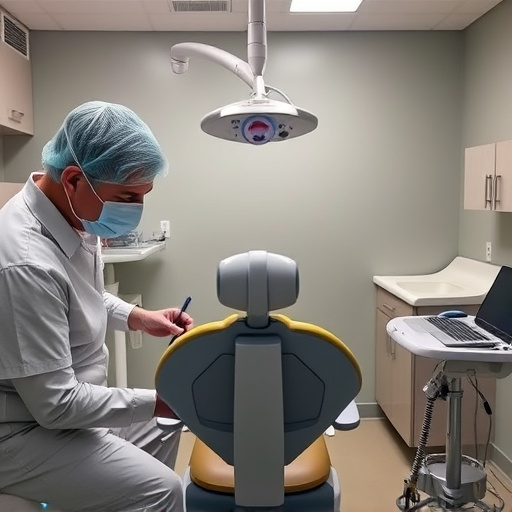
When it comes to addressing tooth sensitivity, a one-size-fits-all approach rarely works. Customised treatment options are key to finding effective relief for each individual’s unique situation. Dentists employ various strategies tailored to the specific needs of patients, ranging from simple lifestyle adjustments and improved oral hygiene routines to more advanced procedures.
Preventive dentistry plays a crucial role in managing sensitivity by eliminating the root causes. Regular teeth cleaning sessions can help remove plaque buildup and gum inflammation, both of which contribute to sensitive teeth. In cases where sensitivity is severe or persistent, emergency dental care might be necessary to address underlying issues such as exposed dentin or receding gums. This could involve procedures like bonding, desensitising agents, or even dental crowns for significant protection and relief.
Long-Term Management and Prevention Strategies

Managing tooth sensitivity effectively involves a combination of long-term strategies and immediate solutions. Regular routine oral exams play a crucial role in this process as they allow dentists to identify early signs of sensitivity and provide guidance on preventive measures. By addressing the root cause, such as exposed dentin or enamel erosion, dental professionals can offer tailored advice for each patient’s unique situation. This may include recommending specific toothpaste formulas designed to desensitize teeth over time or suggesting cosmetic fillings to cover vulnerable areas, thus alleviating discomfort.
Additionally, maintaining a consistent oral hygiene routine is paramount. Using a soft-bristled toothbrush and fluoride toothpaste helps prevent further damage and reduces the risk of sensitivity flare-ups. In cases where sensitivity persists, emergency dental care services can provide rapid relief. From in-office treatments to prescription medications, dentists have various tools at their disposal to offer immediate comfort. Long-term prevention strategies also involve dietary adjustments, avoiding acidic foods and beverages known to contribute to enamel erosion, and adopting a balanced diet that supports overall oral health.
When it comes to addressing tooth sensitivity, a tailored approach is key. By understanding the underlying causes and diagnosing the specific case, individuals can access effective treatment options such as desensitizing toothpaste, fluoride applications, or in-depth procedures like gum grafting. Long-term management involves regular dental check-ups, consistent oral hygiene practices, and identifying triggers to prevent further sensitivity. With the right strategies, managing tooth sensitivity is achievable for everyone.









